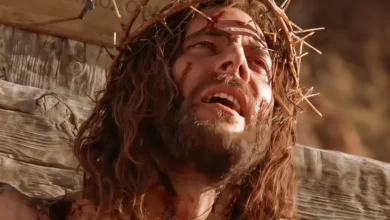
What Does “Not One Jot and Tittle Will Disappear” Mean in the Bible?
What does “not one dot or one line will be lost” mean in the Bible? In the Gospel of Matthew chapter 5, verse 18, Jesus says: “Truly I say to you, until heaven and earth pass away, not one tittle or one jot will fail from the Torah, until what needs to be done is accomplished.”
This phrase is often used to emphasize the infallibility and consistency of the Bible. This means that every word in the Bible is inspired by God and will remain unchanged forever.
The phrase “not one dot or one line shall perish” can be found in the King James Bible.
While this phrase is best known for its use in the King James Version, other Bible translations convey the same message in different terms. For example, the New International Version translates this verse as follows:
“For truly I say to you, until the heavens and the earth disappear, the smallest letter and not even the smallest line of the pen will in no way be erased from the Torah, until all things are fulfilled.”
In both the King James Version and other translations, the main message remains the same: Jesus emphasizes the validity and eternal importance of God’s law.
The word of God is powerful. When he speaks, light penetrates the darkness and life is created. He does not speak randomly and does not waste words. God acts with every thought and deliberate choice, and every intention of His is good and right.
Furthermore, God’s word will not return void (Isaiah 55:11), meaning that His word will not be in vain. Since God wastes no effort or intention, even the smallest detail of His word will be fulfilled.
The phrase “not one dot or one line will pass away” memorably emphasizes the unchanging nature of God’s Word and its eternal importance for believers.
The terms “Jot” and “Title” refer to the smallest details and lines in the written text, especially the Hebrew alphabet and script.

Jot: This word is derived from the Greek word iota, which is the smallest letter in the Greek alphabet. In the New Testament, the term “jute” refers to the smallest letter in the Hebrew alphabet, “iod”. The letter “Yod” is a small letter that appears in many Hebrew scripts as a simple vertical line or a dot. This letter is often used as a prefix to words or part of grammatical structures. Despite its small size, Yod is very important in Hebrew language and grammar.
Tittle: “Title” refers to a distinguishing mark or small line that distinguishes one Hebrew letter from another. In the Hebrew script, many letters have similar shapes. The presence or absence of a title can change the sound of the letter and its meaning. “Title” is metaphorically used for the smallest line or mark of a written letter. This term emphasizes the accuracy and attention to detail required in the copying and transmission of sacred texts. Jesus’ use of the term “titel” emphasizes the preservation of the most precise details of the law.
The phrase “not one dot or one line will pass away” is a powerful way of saying that even the smallest parts of God’s law are essential and will remain unchanged and be fulfilled. This teaching underlines that divine principles are permanent and God’s commands never change.
The use of “jute” and “titel” in the teachings of Jesus is also a reflection of the cultural and linguistic context of that time. In a society where people obsessively copied texts by hand, the accuracy of every letter and stroke was vital to ensure the authenticity of the scriptures. Jewish scribes were responsible for transcribing the scriptures, and their attention to detail was of utmost importance.
Furthermore, by using these terms, Jesus emphasizes that his teaching is not a deviation from the established law, but complements its purpose. He aligns his message with the authoritative foundation of the Hebrew Scriptures.
The meaning of Matthew chapter 5, verse 18 considering its context
The phrase “not one dot or one line will perish” is found in the New Testament, in the teachings of Jesus. The context in which this phrase appears highlights its importance in understanding Jesus’ teachings about the law and its fulfillment.
The part containing the phrase “not one dot or one line will be lost” comes from Matthew chapter 5, verse 18:
“For truly I say to you, until heaven and earth pass away, not one dot or one line will in any way pass from the Torah, until all things are fulfilled.”
This statement occurs in the Sermon on the Mount, where Jesus explains the nature and meaning of the Law (Torah) to his followers. In this verse, Jesus emphasizes the unchanging and eternal nature of God’s law, noting that not even the smallest detail will be void until all that the law stands for is fulfilled.
The main message behind the phrase “not one dot or one line will pass away” is that Jesus affirms the authority and permanence of the divine law. He presents himself as the fulfillment of the law and the prophets, showing that he did not come to abolish the law, but to fulfill it (Matthew chapter 5, verse 17).
Jesus brought a new covenant, a revolutionary way of relating to God. The New Testament contained a different understanding of many of the old Jewish traditions that God had given them. Jesus did not want people to think that he was going to abandon the old covenant. On the contrary, the Old Testament was being realized, expanded, transformed, not destroyed.
Today in the article : What Does “Not One Jot and Tittle Will Disappear” Mean in the Bible? We reviewed useful information about the Bible and the way of Jesus. If you wish, you can view other articles of Ali Vahidi about Christianity





